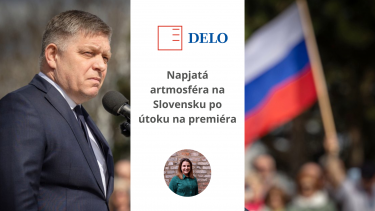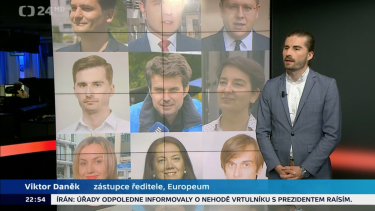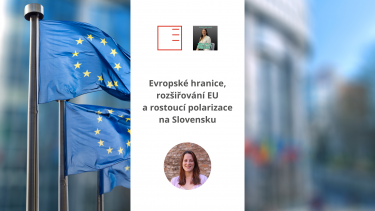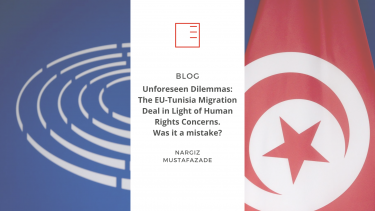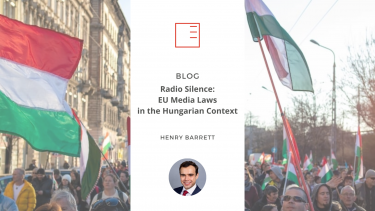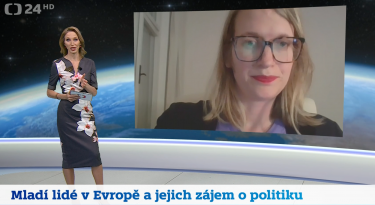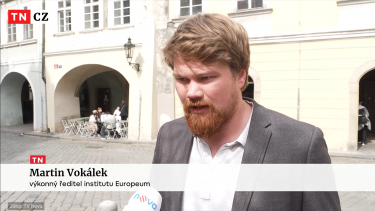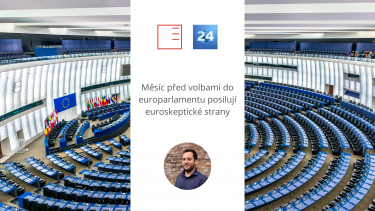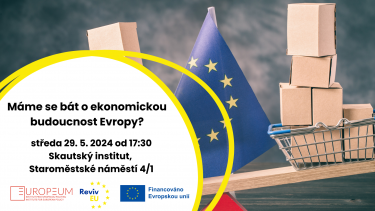Delo | Tense artmosphere in Slovakia after the attack on the Prime Minister
The Slovak political scene has unified and called for calming political tensions following the attack on Prime Minister Robert Fico. However, there are concerns that the governing parties might exploit this tragedy to strengthen their power. It is necessary for political leaders to act responsibly and consider long-term consequences, commented Kristína Chlebáková, Project Manager at Institute EUROPEUM, for the Slovenian newspaper Delo.
Show moreNewsroom ČT24 | How journalists work in Brussels
What is the work of journalists in Brussels like? How difficult is it to find respondents for interviews? And is a lot of media in the Czech Republic interested in the EU? Viktor Daněk, Deputy Director of Institute EUROPEUM, talked about his experiences as a journalist in Brussels on the programme Newsroom ČT24.
Show moreTimpul Prezent | European borders, EU enlargement and growing polarization in Slovakia
What are the borders of Europe and how do they coincide with the borders of the European Union? What are the prospects for EU enlargement towards the Western Balkans and the former Soviet states? These questions are addressed by Jana Juzová, senior researcher at EUROPEUM Institute for the Timpul Prezent podcast. She also discussed the consequences of the recent attack on Slovak Prime Minister Robert Fico and highlighted the growing polarization of Slovak society and the potential threat to media independence.
Show moreBLOG | Unforeseen Dilemmas: The EU-Tunisia Migration Deal in Light of Human Rights Concerns. Was it a mistake?
Tunisia has become the main exit point for asylum seekers and refugees, especially those from sub-Saharan Africa. The EU, faced with a surge in arrivals to Lampedusa, has bolstered its cooperation with Tunisia, signing a Memorandum of Understanding with President Kais Saied. However, questions arise over the EU's handling of human rights abuses in Tunisia, reminiscent of past agreements with Turkey. Nargiz Mustafazade, a trainee in the Brussels office of EUROPEUM Institute, writes about this topic in her blog.
Show moreBLOG | Radio Silence: EU Media Laws in the Hungarian Context
The European Union has passed major legislation to try and secure media freedom and independence in recent years. However, for the state of media pluralism in certain Member States, these efforts have come too late. In the Hungarian context, a pro-ruling party media ecosystem stands well-entrenched in the private and public media sector. Writes our researcher, Henry Barrett, a Fulbright-Schuman Grantee.
Show moreČT24 | Is there growing interest among young people in European politics?
According to the Eurobarometer survey, 91% of young people aged 15-24 believe that participation in European elections is important. How does this attitude translate into practice? Does this mean that there will be an increase in voter turnout among young people? What advantages and opportunities does the European Union offer to younger citizens? Can Brussels effectively explain the benefits of EU membership to young people? These are the questions addressed by Klára Votavová, a research fellow at EUROPEUM Institute, for the Horizont programme on Czech TV.
Show moreTN.cz | The elections to the European Parliament are approaching. The main topic is security
The European Parliament elections will take place in just one month's time. The main issue is the security of the European Union, according to experts. The new composition of the European Parliament will address the war conflict in Ukraine and the Middle East, as well as migration. Martin Vokálek, executive director of EUROPEUM Institute, comments for TN.cz.
Show more
CNN Prima News | Future of Europe after the European Parliament elections
In addition to the usual established parties, there are also recessionary movements running for the European Parliament. We are also seeing an increase in support for national conservative parties or far-right entities. What tendencies are visible on the European political scene today? Is the European Parliament facing a rise in Euroscepticism? And where will Europe go after the forthcoming elections? This and more comments Viktor Daněk, Deputy Director of EUROPEUM Institute.
Show moreČT24 | Euroskeptic parties strengthen a month before the European Parliament elections
The European elections are about a month away. Czechs will vote for 21 of the 720 MEPs. This will be the first election since Brexit, the Covid-19 pandemic or the start of the Russian invasion of Ukraine. Turnout is expected to be higher than in the last elections five years ago, with right-wing and Eurosceptic parties strengthening. Žiga Faktor, deputy director and head of EUROPEUM Institute's Brussels office, described the possible reasons for daily broadcast of Czech TV.
Show more
RevivEU | Should we fear for the economic future of Europe?
We invite you to a public podcast recording focusing on the discussion of the impacts of the COVID-19 pandemic on European industrial policy and its potential consequences for the Czech economy and society. We will discuss the new technological dynamics resulting from the pandemic and explore ways in which the European Union can respond to technological competition with the USA and China.
Show moreStaroměstské náměstí 4/1
Prague 1 - Staré Město
110 00
tel.: +420 212 246 552
email: europeum@europeum.org
https://www.europeum.org
